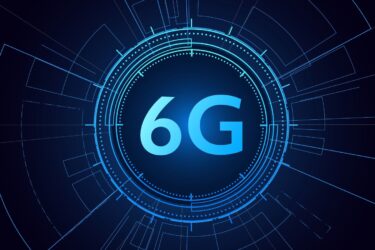The problems facing the dot.coms and also some of the related service companies are now obvious. It is painfully obvious that they have been over-hyped. It is not that they are a bad idea or that there is no market for them, far from it, but greed took aver and the bubble of expectation (and fast profit) grew so large it had to burst.
For some years now it has been becoming increasingly difficult to get investment in manufacturing or services companies, simply because it was perceived that they would not be able to hit the jackpot. Investments in this world of short term thinking are targeted at those which can be sold off in a few years for a big gain, such as the dot.coms, until it all went wrong. The IT industry will suffer from lack of long term investment, of that there is no doubt.
But it is not dot.coms that are the only concept perceived by the stock markets to be big winners. Huge investments are being made in other Internet related technologies, none of which show any sign of returning the gains that are being anticipated. Are they not going to go the same way as the dot.coms? Again they won’t be useless, but they are over-hyped.
Mobile computing is the most obvious case. The simple mobile phone has ben a success, albeit a very irritating one at times. But does anyone really want an "Internet" phone? There has been much support for the WAP protocols, so much that Microsoft has been forced to challenge them with their own variant. For once I have a suspicion that they have wasted their time, they could have taken the simplest route and followed the crowd, because I fear that it will be a small crowd. The technology presents serious problems to begin with. An Internet phone needs a higher data rate than the 9600 bps provided by the common GSM modems and so there is a lot of talk about the next generation high speed wireless (broadband) networks. BT have paid huge sums of money for the licences to use the spectrum allocated for these services. The full service will not be available for a couple of years yet (if it works!), but they have launched an interim service. It was not very well received, I’m afraid, but not so much for the speed problems, but for the difficulty of using the tiny screens and keyboards for anything other than simole short messaging. SMS is available already on the cheaper GSM services (the current fad among teenagers) so that some thing much better is needed if the newer, more expensive service is to succeed. And that is the root of the problem; it is obvious that a faster service will be appreciated, but can one be provided cost effectively? Surely it is only a small number of users who can exploit a Web connection form a telephone.
The other problem reported by users of the early systems was the poor facilities provided by the Web. The Web services available are all biassed towards users with lots of power in the form of PCs, and all too many of those are awful in practice, so that once again this constrains the use of Internet phones to specialist applications, and thus small user bases. The inevitable conclusion is that the correlated development of broadband mobile communications and Internet phones is going to be another financial disaster, probably as bad as the dot.com issue. It is inevitable because of competition between communication network suppliers that we will get faster, cheaper mobile communication, but there are going to be some problems before it is readily available. I suspect that the real commercial gains will be made on faster terrestrial connections for domestic use (high volumes!) rather high speed mobile.
While we are on the subject then, there are other proposals related to the Internet that must be questioned. Is pervasive computing a reality? Is there a real commercial opportunity for putting processors and Windows into refrigerators or is it just another silly idea which would be interesting if it were free, but is it worth paying for in volume? Does anyone really think that peer-to-peer computing over the Internet will work? It must be impossible to keep all those PCs up and working and available and secure, etc., etc. I have a better idea, centralise the computing!
The fact of life is that the dot.coms are not alone in being over-hyped.








